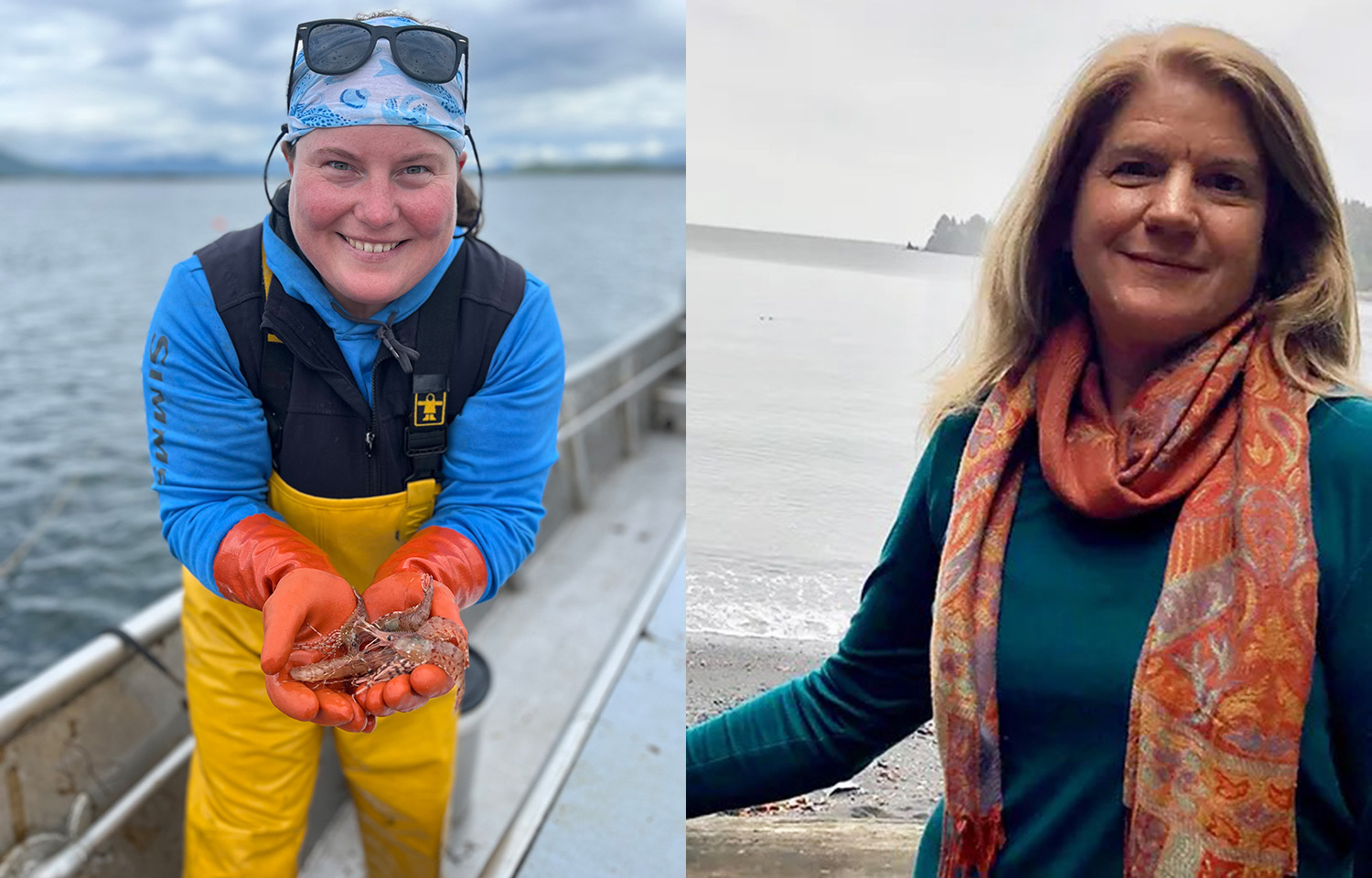Michelle Stratton is a fisheries scientist for the Alaska Marine Conservation Council. She grew up commercial salmon fishing with her family and currently fishes in Kodiak, Alaska. Theresa Peterson is the fisheries policy director for the Alaska Marine Conservation Council. She and her family live in Kodiak, Alaska, and participate in a variety of commercial fisheries.
Gulf of Alaska communities have a long history of adaptation. They have survived and thrived through wars, economic depressions, and natural disasters. They have also adapted to changes in the fishing industry, such as the decline of populations and the rise of aquaculture. Fishing communities are resilient. They have the knowledge, skills, and experience to adapt to challenges, including those brought by changing climates. With the right support, they can continue to thrive, but to do that, they need scientific information that supports resiliency.
Most of us are well aware of the blob, a massive marine heatwave that hit the Gulf of Alaska starting in 2014, causing widespread mortality of marine organisms, including commercially important species such as Pacific cod, halibut, and salmon. Alaska fishing communities and seafood processors suffered significant economic losses as a result, leading to 18 fisheries in the gulf being declared official disasters. Scientists predict the effects of climate change will continue to intensify in coming years, with more frequent and severe heatwaves, as well as increased ocean acidification and harmful algal blooms. These changes are likely to have an ongoing and profound impact on Gulf of Alaska fisheries and on the communities and economies that depend on them.
The Alaska Marine Conservation Council has worked for three decades to create bridges between scientific resources and fishing communities. We have a long-term commitment to advance these critical discussions and recognize the importance of increasing efforts as unprecedented changes unfold around us. This kind of collaboration can help maintain resilience in Alaskan fishing communities, particularly as the marine environment changes.
In June, the North Pacific Fishery Management Council will host a key opportunity to learn about ongoing climate science and share ideas about federal fisheries management. The Climate Scenarios Workshop on 5 and 6 June in Kodiak offers an opportunity for us to expand our networks and identify tangible components of climate resilience specific to distinct people and places.
This, and workshops like it, may provide valuable insights into the magnitude of these changes and their implications for the region. The workshop is structured to convene stakeholders from fishing communities and fisheries science to energize needed discussions in federal management around developing climate-ready fisheries. Ideally, the critical knowledge and recommendations for action from discussions like this will be applied directly within current management plans and policies – early on in the process – and play a pivotal role in ensuring the long-term sustainability of the region's fisheries. That approach, and others like it, would be a shift from how our current system incorporates or prioritizes place-based, proactive conservation and management. That shift is important, necessary, and critical to community resilience. This is a process that needs community input.
The lifeblood of the Gulf of Alaska comprises numerous geographically isolated communities that find their very existence intertwined with the sea. Many of these communities rely heavily on fishing as their primary economic driver. When fish populations decline or disappear, the resulting economic losses can and have been substantial. Declines in fisheries have led to significant impacts on these communities' cultural identities as historically long-time fishing communities and a way of life. Fisheries losses not only have devastating consequences for individual fishermen but extend to local economies, food systems near and far, and the existential wellness of fishing-dependent peoples.
Despite clear needs and challenges, there is an overall lack of cohesive planning to support the resiliency of our fishing communities for the future. Many are unprepared for the challenges they are already experiencing and even less prepared for the shifts likely to come in the future. One important step that can be taken now is creating opportunities for fishermen, community members, and other stakeholders to come together and discuss the challenges they are facing and develop strategies for addressing them. Doing that in partnership with scientific and governance processes – as well as Indigenous knowledge systems – will help create long-term plans that identify both risks and strategic responses.
In many ways, the work of stewardship has always been a blend of science or other comprehensive knowledge systems, partnered with the commitment of community. Resilience in the marine ecosystem underpins resilience in human communities. Scientific guidance and community support are crucial partners in that resilience, and ocean ecosystems need our combined resources more than ever. Discussions are underway in fishing communities like Kodiak to advance an understanding of climate adaptation for communities dependent on fishing for economic, social, and cultural well-being.
Fishing communities need ongoing research to understand the current climate obstacles and those to come. Researchers rely on the unique knowledge of community members and their ability to identify vulnerabilities and key questions. Having a synergistic relationship between fishing communities and science creates a stronger path forward, filling knowledge gaps in a way that no one discipline or community can do alone. Just as marine resources provide for communities through nutrition, work, and culture, those ecosystems are relying on us to provide informed, responsible stewardship.







